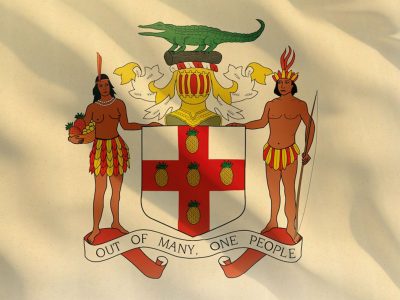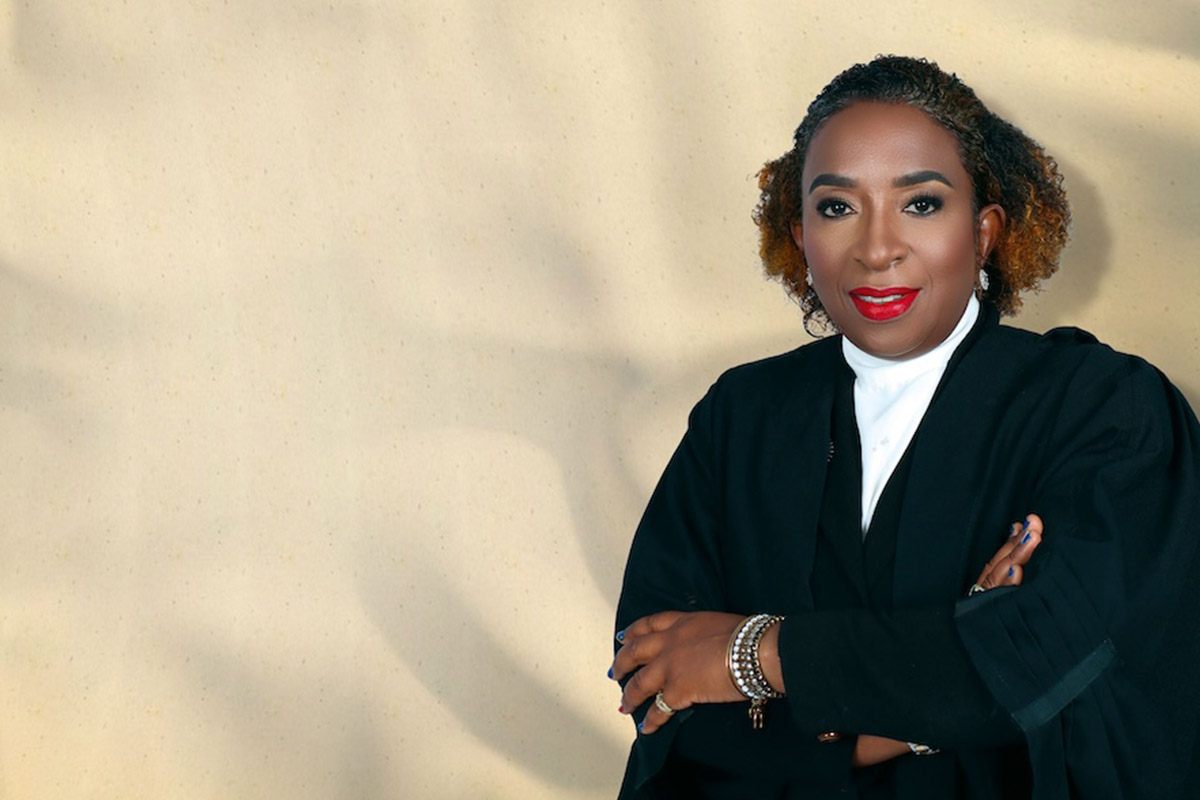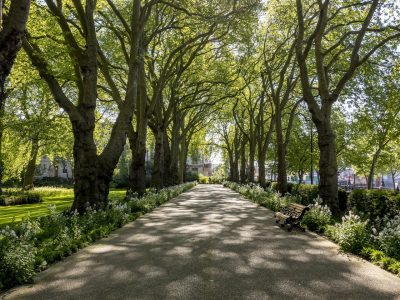
Life at the Bar in Jamaica
When persons hear the word ‘Jamaica’ “first thing that comes to mind is Sun, Sea, Sex and Sand” which is spot on; but Jamaica is more than that; it is the largest English-speaking Caribbean Island in the Western Hemisphere, with a population of 2.8 million. This warm sunny Caribbean Island is home to a legal system rooted in the Westminster model, adopted from its British colonizers, which boasts an independent judiciary in the conduct and maintenance of the rule of law.
History
Prior to 1973, persons who sought to have a career at the Bar had to undertake a pilgrimage to England to read for the Bar Exams at one of the four Inns namely, The Inner Temple, Middle Temple, Lincoln’s Inn and Gray’s Inn. My late father, Arthur Glen-Roy Cruickshank KC, was a participant of this journey and was called to the Bar by The Inner Temple in 1969. 35 years later I was bestowed the privilege of being called to Bar of England and Wales at The Inner Temple.
In Jamaica, the Legal Profession Act 1972 abolished the two categories of lawyers that were previously known as solicitors and barristers fusing the names and practices of each category, resulting in all persons practising at the Bar being titled Attorneys-at-Law.
Education
Jamaica is one of the three Caribbean islands that is home to the Law Schools, which are empowered by the Council of Legal Education Act 1974 to deliver legal education and award Legal Education Certificates for persons who qualify to practise law. The Norman Manley Law School (NMLS) in Jamaica is celebrating its 50th anniversary this year, having opened its doors in 1973; NMLS shares the delivery of legal education with the Eugene Dupuch Law School in the Bahamas, and the Hugh Wooding Law School in Trinidad.
Employment
There are three contexts in which attorneys practise at the Bar: (i) Self-employed (sole-practitioners) either with partnerships or with companies, (ii) The Government Service as Prosecuting Clerk of Court, Public Prosecutor in the Office of the Department of Public Prosecution, the Attorney General’s and Solicitor General’s Chambers, The Legal Aid Council, and In-House General Counsel within the Public Bodies,(iii) and Academia, wherein attorneys who are instructed by the NMLS Legal Aid Clinic, teach the practice of Law.
Practice at the Criminal Bar
Ironically and interestingly, Jamaica was described under the colonisation of the British in the 1700’s as the “wealthiest and wickedest city in the world”. Today, according to the world population review, Jamaica ranks number ten for having the highest crime rate per 100,000 people at 67.42 per cent. This number has kept practitioners at the Criminal Bar as busy as a well-oiled machine; as the advent of technology, combined with globalisation has cracked open a door for rogues to use technology as a conduit for illicit activity. This has resulted in the proliferation of financial crimes, organized crimes, and gun crimes, with legislators having to enact laws to maintain the rule of law for economic and social stability. The following legislations have been passed to charge and prosecute citizens who have allegedly committed these offences:
- The Law Reform (Fraudulent Transactions) (Special Provisions) Act, 2013, for lottery scam offences,
- The Criminal Justice (Suppression of Criminal Organisations) (Amendment) Act, 2021 (commonly called the Anti-Gang legislation)
- The Bail Act 2022 *
- The Firearm Act 2022 *
* The latter was amended to support the former with the Bail Act being amended to make it more difficult to apply for and obtain bail.
Post-Lockdown Review
Like all countries in the global community, Jamaica faced the formidable challenge of the COVID-19 pandemic. The justice system did not escape its clutches; but our stakeholders accelerated the inclusion of remote hearings, with our Bail Applications being heard during the period of lockdown, preserving the constitution and human rights of an accused person. Practice Directions were drafted and implemented, which assisted in this new dimension.
Final Court of Appeal
As a member of the Caribbean Commonwealth, Jamaica has its final court of appeal with the Judicial Committee of the Privy Council in the United Kingdom (JCPC), with the most recent case being delivered on the 11 May 2023–[2023] UKPC14-JCPC 2021/0041 – Court of Appeal Jamaica Tafari Morrison (Appellant) v The King (Respondent) (Jamaica) where the JCPC was sought to determine “whether the appellant’s sentence for wounding with intent was unlawful because it was determined in accordance with a statutory minimum.” – equally of professional significance, was the case which delivered on 9 February 2023–[2023] UKPC6 – JCPC2021/0053-Court of Appeal The General Legal Council and another (Applicants) v The Jamaican Bar Association (Respondent) Jamaica. Submissions to the JCPC were to determine “whether the Jamaican Statutory Regime to combat money laundering is constitutional insofar as it applies to attorneys-at-law”.
Caribbean Court of Justice
On 14 February 2001, Caribbean countries through the Treaty of Chaguaramas established the Caribbean Court of Justice (CCJ) with signatories being conducted by ten CARICOM Member States: Antigua and Barbuda, Barbados, Belize, Grenada, Guyana, Jamaica, St Kitts and Nevis, St Lucia, Suriname, and Trinidad and Tobago. Two years later, on the 15 February 2003, Dominica, and St Vincent and The Grenadines, signed the agreement, bringing the total number of signatories to 12. The inception of this court sought to concretise the independence and competence of its members in the administration of justice within the Commonwealth Caribbean Countries. Jamaica is seeking to make the Caribbean Court of Justice its final appellate court.
In Jamaica, over the last few years, there has been an increasing fever of debate that the time has come for Jamaica as a post-colonial society to work assiduously to remove the monarch of the United Kingdom as its Head of State; this position was etched in on 23 July 1962, by Order in Council of Jamaica. This enduring discussion is supported by policy makers, the political directorate, and the citizens of Jamaica, as the subject appealing to the monarch, the monarchy, and final appeal court goes hand in hand. The desire for Constitutional Change is to promote and reflect our national motto “Out of many, one people” which would have a head of state reflecting the image of the indigenous people. This would entrench in the mind of every Jamaican the notion of ‘big dreams’ giving each and every Jamaican the hope and ability to hold the highest esteemed office on the island. The present government has established a new Ministry – the Ministry of Legal and Economic Affairs, out of the Office of the Prime Minister, to lead this charge in moving Jamaica from a Westminster system of government to a republican system of government. A referendum is being recommended, similar to what happened in Jamaica in 1960, with the populace voting to stay or leave the West Indian Federation. Jamaica voted to leave, like what was seen in the United Kingdom in 2016, to stay or leave the European Union. Jamaica’s removal of the United Kingdom’s monarch as its Head of State and the severing of ties with the Judicial Committee of the Privy Council may happen during the reign of King Charles III and will finally cut the umbilical cord with colonialisation dating back to 1655.
In Closing
Today, I teach at the NLMS Legal Aid Clinic, the vocational department of the Norman Manley Law School, where we train and prepare our students for the practice of law. Having attained Qualified Teacher Status of England and Wales in 2003, being called to the Bar of England and Wales in 2004, and admitted to the Jamaican Bar in 2005, I have had the privilege, combined with experience to prepare students for the theoretical, practical, and ethical side of ‘life at the Bar’.

Dionne A Cruickshank
Law Lecturer/ Attorney-at-Law
Norman Manley Law School Legal Aid Clinic
Kingston, Jamaica
